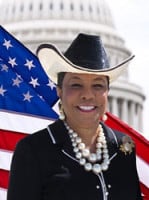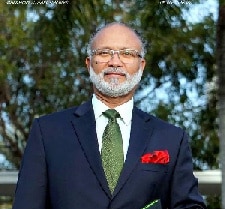Second Obama-Romney Debate Reflects Americans’ Economic Concerns
Washington — The second presidential debate between former Massachusetts Governor Mitt Romney and President Obama offered the only opportunity for American voters, rather than just a debate moderator, to pose questions to both candidates.
Their chosen topics reflected a U.S. electorate whose main concern is the state of the American economy and employment prospects as the country continues to recover from its worst financial crisis since the Great Depression.
CNN’s Candy Crowley moderated the October 16 town hall–style debate, held at Hofstra University in New York. The audience consisted of 82 undecided voters who live near the suburban Long Island institution.
The audience was randomly selected by the Gallup Organization, and audience members submitted a question on an index card to Crowley, who chose which voter would get to ask their question.
When Crowley called on first-time voter Jeremy Epstein, he reflected a concern among many younger Americans about their chances of finding a job after finishing their education while also needing to repay student loan debts.
“Mr. President, Governor Romney, as a 20-year-old college student, all I hear from professors, neighbors and others is that when I graduate, I will have little chance to get employment. What can you say to reassure me, but more importantly my parents, that I will be able to sufficiently support myself after I graduate?” Epstein asked.
“Your question is one that’s being asked by college kids all over this country,” Romney said. The Republican candidate said the solution is to “make it easier for kids to afford college and also make sure that when they get out of college, there’s a job.”
Romney said, “I know what it takes to create good jobs again,” and directed voters to his “five-point plan” that he said would create 12 million new jobs in the United States over the next four years and increase worker take-home pay.
That is “going to help Jeremy get a job when he comes out of school. It’s going to help people across the country that are unemployed right now,” he said.
President Obama said he plans to tackle unemployment by encouraging the growth of U.S. manufacturing jobs through measures such as changing the tax code “so we’re giving incentives to companies that are investing here in the United States and creating jobs here,” and “helping them and small businesses to export all around the world in new markets.”
The president also said he wants to ensure that U.S. community colleges are retraining workers to help them find jobs in the current economy and for the future, and to invest in energy sources such as solar and wind power, biofuels and energy-efficient cars. “That’s going to help Jeremy get a job,” he said.
Other voters asked about rising fuel costs, whether their taxes would increase or they would lose tax deductions, the loss of U.S. jobs to other countries, immigration reform, and the income discrepancy between male and female workers.
On gender pay equity, President Obama pointed to a bill he signed at the beginning of his administration that enforces pay equity for women, and Romney said that while serving as governor, he had taken steps to ensure qualified women would be part of his administration in Massachusetts.
On immigration, Obama repeated his support for comprehensive immigration reform that would include a pathway to citizenship for undocumented immigrants, while defending his decision to allow children of those immigrants to apply for visas. Romney criticized the president’s inability to pass immigration reform legislation and said he supported pathways for undocumented children to become U.S. permanent residents through service in the U.S. military or other programs.
SUBURBS REFLECT MAJORITY CONCERNS
Lawrence Levy, writing in the Long Island newspaper Newsday October 17, said suburban U.S. voters, such as those who participated in the town hall debate, are critical to any presidential candidate because they tend to be middle-class citizens whose concerns reflect the American population as a whole.
“For 90 often tense and intriguing minutes, Long Islanders had a personal, in-your-face say in what may have been Campaign 2012’s pivotal confrontation. They acted as surrogates for millions of people in aging suburbs whose votes will count — and whose education, infrastructure and other needs are just as great,” Levy wrote.
Questions about fuel costs reflect the fact that those in the suburbs “own more cars, drive more miles and experience more highway congestion than other Americans,” he wrote.
Regarding the concern over jobs and taxes, Levy pointed out that compared to other Americans, suburbanites are more likely to send their children to college and spend more on education. They have the highest level of home ownership and are more likely to take advantage of tax deductions on their mortgage interest and property taxes.
With many young Americans in particular having difficulty finding jobs and being forced to return to their parents’ homes after college rather than establish themselves independently, Levy said, “Suburban viewers had to especially empathize with … Jeremy Epstein — and listen carefully for answers” from both presidential hopefuls.
The third and final presidential debate before Election Day on November 6, this one focused on foreign affairs, is scheduled for October 22 at Lynn University in Boca Raton, Florida.



